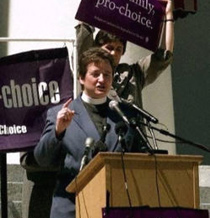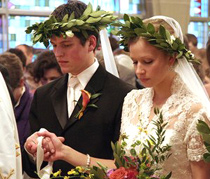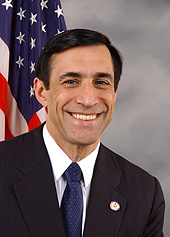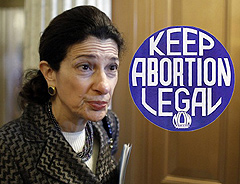Does capitalism and the free market make you selfish? Dennis Prager answers this question and challenges what for many has become conventional wisdom.
Moral issues
Rev. Ragsdale Goes to Congress: Time to Expose Counterfeit ‘Christianity’

The unbroken teaching of the Christian Church has been – and continues to be – that every procured abortion is the taking of an innocent human life.
Rev. Katherine Hancock Ragsdale is the “go to” witness these days for the radical abortion on demand lobby. She not only makes for good optics when she wears that clerical collar, she feigns outrage that anyone would attempt to stop any abortion for any reason. After all, she has now openly identified her position that abortion is a “blessing”. She has the audacity to defend this position as consistent with the Christian faith she claims to profess.The early Church lived through similar examples of apostate leaders claiming the authority of the Church. ..
On Thursday March 8, 2012, Rev. Dr. Katherine Hancock Ragsdale, the President and Dean of the Episcopal Divinity School in Cambridge, Massachusetts, appeared in a clerical collar to testify in the United States House of Representatives. Her testimony was an example of the counterfeit which now claims to be Christianity. [Read more…]
‘Social Issues’ Are Really Moral Issues
 by Trevor Thomas –
by Trevor Thomas –
One of the greatest deceptions perpetuated by the mainstream media concerning the American political scene is the idea that whenever the “social issues” are prominent in election debate, conservatives lose. James Taranto of the Wall Street Journal recently wrote about an upcoming book by Jeffrey Bell — The Case for Polarized Politics — that helps dispel this myth.
“Social issues were nonexistent in the period 1932 to 1964,” notes Bell. “The Republican Party won two presidential elections out of nine, and they had the Congress for all of four years in that entire period. … When social issues came into the mix — I would date it from the 1968 election … the Republican Party won seven out of 11 presidential elections.” [Read more…]
How to Win the Marriage Debate
 by Selwyn Duke –
by Selwyn Duke –
The big news on the culture-war front is a federal court’s striking down of Proposition 8, California’s constitutional amendment protecting marriage. In a two-to-one ruling, the United States Court of Appeals for the Ninth Circuit wrote, “The people may not employ the initiative power to single out a disfavored group for unequal treatment and strip them, without a legitimate justification, of a right as important as the right to marry.”
Now, I’m not sure why the judges mention a “disfavored group,” as if singling out a “favored” one for unequal treatment would be okay. As far as I know, the 14th Amendment, on which the court based its ruling, doesn’t offer equal protection to only those the current fashions deem “disfavored.” Thus, I think this is an example of emotionalism influencing a ruling and its language, sort of as if a judge sentenced a defendant and, adding an adjective, announced him as “stupid” Mr. Smith. Calling a group “disfavored” is similarly a subjective judgment. This is not the only thing the judges were subjective about, however. [Read more…]
Fixing the Moral Deficit, Biblical Principles for Debt Reduction

Thirty-five years ago, my friend Ron Sider published Rich Christians in an Age of Hunger, a very influential book at the time. While I haven’t always agreed with Ron, in fact, we’re poles apart politically, I have no doubt of his integrity, his wisdom and his desire to bring biblical truth to all aspects of life.
That’s why so I’m happy that Ron has turned his attention to one of the most pressing issues of our time: our national debt.
His new book, Fixing the Moral Deficit, is the result of his reflections on the issue. As the title suggests, for Ron, the ballooning national debt isn’t simply a matter of accounting. According to him, there are three “crises” operating here: the first is the deficit crisis, the result of government spending more than it collects in taxes; the second is a poverty crisis, in which the bottom 20 percent become poorer, while the top twenty percent get wealthier.
Together, he says, these add up to a third crisis—which he calls the “justice crisis”–in which we “put current expenditures on our grandchildren’s credit cards,” which Sider calls “flatly immoral.” Amen. [Read more…]
Issa: Distorting the Debate of Religious Freedom
 by Rep. Darrell Issa
by Rep. Darrell Issa
Let’s make something perfectly clear: I support a woman’s right to use contraceptives. I don’t question whether women and men have a right to use contraception — I believe they do. This is not about religious freedom versus contraception but about religious freedom versus unconstitutional mandates.
When Congress granted broad powers and authority to the Obama administration through the 2010 health care overhaul, it was never explained that the administration would use those powers to launch an assault on religious freedom. [Read more…]
Darrell Issa, Orthodox Congressman, On Religious Freedom

Congressman Darrell Issa is an Orthodox Christian politician (Republican) from California. As a member of the House of Representatives he spoke out against Obama’s HHS healthcare mandate that infringes on the religious liberty of all Americans. He is not afraid to stand up and speak up for what is right and just. Here is Rep. Darrell Issa’s statement from a hearing on “Separation of Church and State” held on February 16, 2012:
Date: Feb. 16, 2012
Location: Washington, DCAmericans of all faiths have a right to practice their religion free from the fear of persecution or harassment from their government. Our nation’s founders believed this and enshrined religious freedom into the First Amendment to the Constitution.
While some Americans may not feel that government mandates forcing them to pay for contraception are an infringement on their religious beliefs, others consider it to be an assault against their freedom of conscience. A government policy that encroaches on the conscientious objections of religious groups concerns all Americans who value the protections of the First Amendment. [Read more…]
Something deadly this way comes: the insatiable appetite of the Culture of Death

The debate over abortion comes down to one essential issue — the moral status of the unborn child. Those making the case for the legalization of abortion argue that the developing fetus lacks a moral status that would trump a woman’s desire to abort the child. Those arguing against abortion do so by making the opposite claim; that the unborn child, precisely because it is a developing human being, possesses a moral status by the very fact of its human existence that would clearly trump any rationale offered for its willful destruction.
This central issue is often obscured in both public argument and private conversations about abortion, but it remains the essential question. We have laws against homicide, and if the unborn child is recognized legally and morally as a human being, abortion would be rightly seen as murder.
In the main, abortion rights advocates have drawn the moral line at the moment of birth. That is why, even with our contemporary knowledge of the developing fetus, abortion rights activists have persistently argued in favor of abortions right up to the moment of birth. Anyone doubting this claim needs only to consider the unified opposition of leading abortion rights advocates to restrictions on late-term abortions. [Read more…]
The New Scar on My Soul
 by anonymous –
by anonymous –
Abortion is not an excision of a featureless bunch of cells; it is infanticide. It is not painless for the child, and anyone who says otherwise is a liar. We have revived the practice of child sacrifice to the new deities of casual sex and convenience. We rationalize the reality of murder by altering our perspective of the nascent life through euphemisms like “fetus” or descriptions of “a clump of cells”…just like the Nazis convinced themselves that the people screaming as they were shot or gassed were “Untermenchen,” subhuman, and therefore guiltlessly exterminated. …
My soul carries a new scar. The pain is fresh and keen, and I know that while time might see the pain fade, I will never fully recover from what I’ve seen, and done. For I have failed, intentionally and knowingly, in the first duty of a parent: protecting the lives of two of my children.
My wife and I wanted children; alas, we needed IVF treatment to realize this dream. Several cycles and multiple embryo implantations later, we welcomed our blessing from G-d, who is the light of our lives. [Read more…]
Pro-Abortion Snowe Retires, Will Pro-Lifers Win the Senate?

Late Monday afternoon, Senator Olympia Snowe (R-ME) sent shockwaves through Washington when she announced she would not seek reelection to the US Senate in November.
Snowe, long known as a centrist, cited the “partisanship” of Washington as the reason for her decision. While pro-life advocates may not hold Snowe in the highest regard, her Senate seat was viewed as a safe Republican seat heading into the November elections. Keeping Maine in Republican hands becomes a much more difficult task with Snowe out of the picture.
In 59 scored pro-life votes by the National Right to Life Committee, Snowe voted pro-abortion 46 times. Some of her worst offenses include voting against the ban on partial-birth abortion, against the Unborn Victims of Violence Act, against the Mexico City Policy, in favor of federal funding of Planned Parenthood and in favor of federal funding for embryonic stem cell research. [Read more…]
